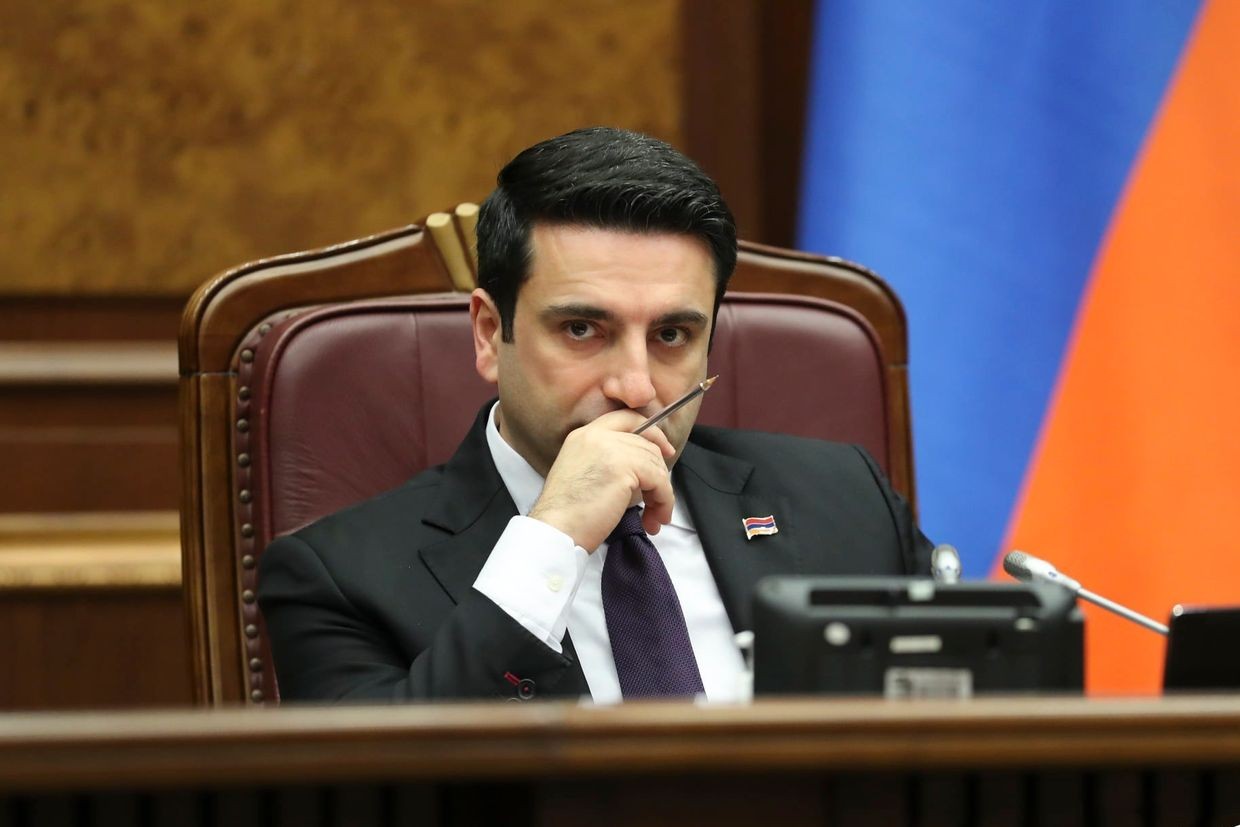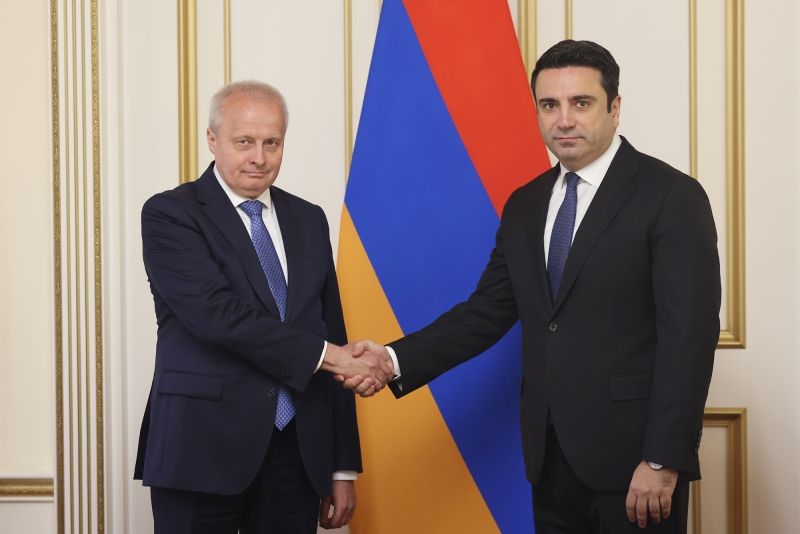
On Monday, Armenian Parliamentary Speaker Alen Simonyan said that ‘a hybrid war is being waged against Armenia’ by Russia and ‘warn[ed]’ that the war would ‘become even more active in 2026’, when Armenia will hold its parliamentary election.
The statement was made during a press briefing, with Simonyan expressing confidence that the hybrid war would have ‘the opposite effect’ of doubling the rating of the Armenian current government.
Talking about the manifestation of the hybrid war, Simonyan said that sometimes it becomes more active, with the Russian side using ethnic Armenian commentators on Russian TV.

When asked if he sees a threat of a coup in Armenia with the help of Moscow, Simonyan said no, adding that he ‘trusts’ the Armenian people.
Simonyan elaborated that his assessments were based on the experience, as since the 2020 Second Nagorno-Karabakh War, ‘the goal of changing the government in Armenia has been a dominant and important objective for various poles and different sides’.
Responding to a question suggesting that Prime Minister Nikol Pashinyan was an ‘undesirable’ person for Russia, Simonyan countered by saying that the government hears the opposite from ‘our partners’.
Simonyan then received a follow-up from a reporter, who further questioned if that was truly the case, given the claims that Russia has been seeking a change of government in Armenia. In response, among other reasons, Simonyan mentioned that due to historical developments, Armenia has been taking clear steps to strengthen its statehood and raise the degree of its independence. Simonyan added that not everyone is pleased with these moves, as they have made Armenia ‘not as controllable as it used to be’.
Simonyan also accused former President Robert Kocharyan of ‘having a status of a Russian spy in Armenia’ and of ‘pursuing Russian interests and rendering services only in that direction’ in response to a question about comments the ex-president had made about Armenian–Russian cooperation.
‘When you make a statement that is identical to the Russian statements, when members of your faction make speeches which match [the views of the Russian side], then I can make such a conclusion’, Simonyan said, adding that it was his ‘political assessment’.
He also brought the example of Vardan Ghukasyan, the newly elected mayor of Armenia’s second-largest city Gyumri, who stated in April that he was in favour of a union state with Russia ‘on the principle of Belarus’.

Simonyan said that Ghukasyan was ‘endorsed by Robert Kocharyan’.
In response, Bagrat Mikoyan, the head of Kocharyan’s office, accused Simonyan of being an agent of Azerbaijan and Turkey.
Before making his accusations towards Russia, also on Monday, Simonyan met with Russian Ambassador to Armenia Sergei Kopyrkin.

According to the readout of the Armenian Parliament, the two discussed ‘topics regarding the bilateral, as well as inter-parliamentary relations’ as well as the agenda issues of the upcoming official visit of Valentina Matvienko, speaker of Russia’s Federal Council, to Armenia.
Earlier in May, Kopyrkin issued a statement claiming that the Kremlin ‘expects that our Armenian allies will not allow the Russophobic forces in the West to use their beautiful country to open a “second front” of confrontation with Russia’.
Again on Monday, the Armenian Foreign Ministry told Armenpress that Russian Foreign Minister Sergei Lavrov’s visit to Armenia ‘is planned for the near future’.
The freefall of the bilateral ties largely began following the lack of support from Russia and the Moscow-led Collective Security Treaty Organisation (CSTO) during the Azerbaijani attacks on Armenia in 2021 and 2022. Another major reason was the ‘inaction’ of Russian peacekeepers in Nagorno-Karabakh, when Azerbaijan placed the region in a nine-month blockade and forced it to surrender in a culminating lightning offensive in September 2023.
One of the signs that relations were improving came in January, when Armenian Foreign Minister Ararat Mirzoyan and Lavrov held talks in Moscow in ‘a sincere and constructive atmosphere’.











